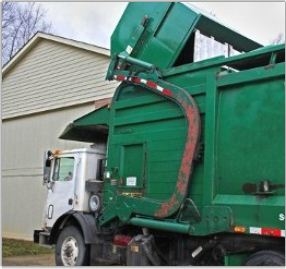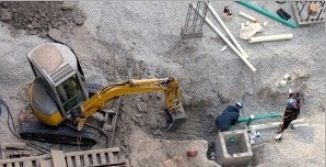Are you tired of bumping along the dusty private road that leads to your property? When you’re ready to pave a road that will make transportation more comfortable, we’re ready to handle the roadbed work.
If you’ve been thinking you can pave your own private road as a weekend project, you may be in for a number of hurdles. To make the project go smoother, let us handle the land preparation.
Working on a project and need to have some digging done- or some extra soil brought in? An excavating professional is likely to be able to help you with those needs, and can provide the power to get the job done.
The inventive spirit sometimes runs in a family. In 1837, William Otis invented the steam-powered shovel that transformed excavation work. By 1853, his cousin Elisha had developed the first functional elevator safety brake and launched the Otis Elevator Company.
We understand that a lot of different tasks go into preparing a site for construction. Whether you need classic excavation work or a little help clearing the rocks, we may be able to help.
It’s important to remember that excavations aren’t just for people trying to remove nine feet of dirt from their property. If you have a driveway that’s clearly seen better days, our excavation team may be able to help with it.
Need to have a mountain moved- literally? It takes more time and expertise than you think it will, but a professional excavator has the tools and people to make the job that much easier.
Dealing with a drainage issue? An excavator can make the job considerably easier, and much quicker, than renting the equipment and doing it yourself. And that leaves you free for other projects. A true win/win situation.
Did you know that only a professional engineer can design a protection system for excavations 20 feet or deeper? This is because trenching and excavation involve a degree of risk to personnel, equipment, and schedules.
In many cases, it’s good to bring an excavation contractor in when it comes to the building and/or expansion of agricultural ponds. He or she will be able to make the hole deeper and larger, and also help seal the bottom so that fluctuation is less of an issue.
No matter what type of foundation you need, we can handle the excavation work. That includes foundations for driveways, detached garages, or the entire house.
Did you know that spoil piles should be at least two feet away from the excavation? This can help reduce work-related accidents and ensure the project is both efficient and successful.
It’s important to remember that there’s more to a durable and safe road than just the pavement. Without planning for adequate drainage, you risk an unsafe road full of potholes.
When a trench is being dug, it’s important to get it dug to the exact right depth to save on costs and work. Too shallow, and the trench might need to be re-dug, while a trench that’s too deep (known as "over-dig") is wasteful and expensive.
Did you know your property's soil profile and topography are unique compared to other projects in the same neighborhood? Our reliable, experienced professionals have the experience to anticipate problems with backfilling, structural integrity, and initial budgets.
Front end loaders feature a loader that is larger than that of a backhoe, making it much more efficient at grading large areas and thus ideal for landscaping applications. Other names for front end loaders include bucket loader, scoop loaders, and shovels.
The most frequent type of excavation work performed is common excavation. This includes the movement of soil materials, as well as certain types of pavement materials.
Regardless of whether you need land prepped for a major shopping center or for a basement for your home, we have teams of skilled equipment operators available that can handle a digging job of any size or scope.
One of the most common pieces of equipment used by excavation experts is the backhoe. It can go by a "loader backhoe," "backhoe loader," or "tractor backhoe," but regardless, it’s an incredibly versatile piece of equipment that can be used for many projects.
One common job performed by excavation contractors is concrete preparatory work. This includes moving dirt and preparing the site for the pouring of basements, foundations, driveways, and parking lots.
The same hydraulic forces that can make excavation work challenging also supply the power that makes modern excavation equipment efficient. In fact, at moderate speeds, hydraulic motors require a minimal level of power to produce significant earth-moving force.
Have you been putting off the changes you want to make to your landscape design because of the unsightly concrete pathways that need to be excavated first? Whether you need pathways removed or eight feet of dirt, we’re always here to help.






